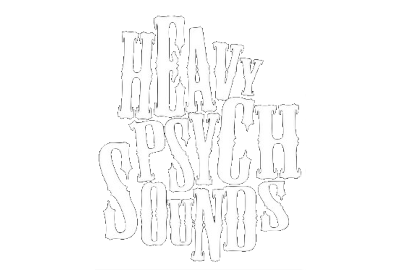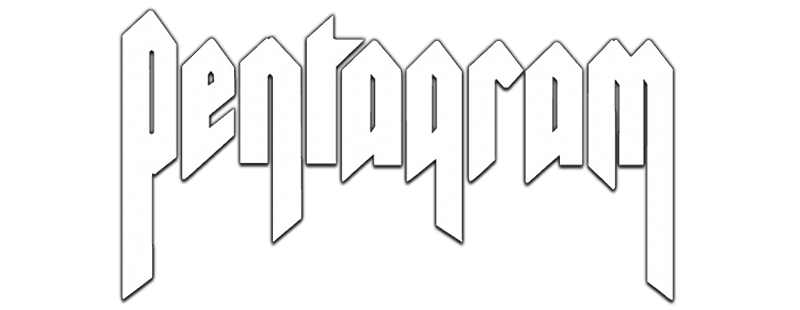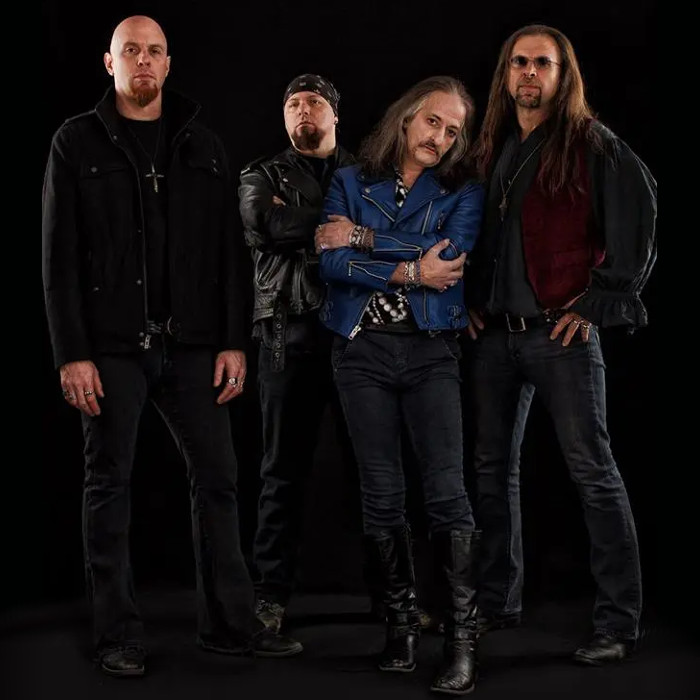Members
5 Male
Origin
 Alexandria, Virginia,
Alexandria, Virginia,
Genre
 Heavy Metal
Heavy Metal
Style
---
Mood
---
Active
 1971 to Present...
1971 to Present...
Cutout

Current Record Label

5 Male
Origin
Genre
Style
---
Mood
---
Active
Cutout
Current Record Label

7 users
7 users
7 users
7 users
7 users
Artist Biography
Available in:
The most well-known and recognized Pentagram, from Arlington, Virginia, United States of America, is one of the earliest doom bands around. Having been around in one form or another since 1971, it’s safe to say that Pentagram had a big impact on Sabbath inspired doom metal that was to follow over the next decade. The band also strongly intertwines with the band Bedemon and is sometimes seen as one and the same. Pentagram are considered to be one of the all time classics by many older fans for understandable reasons. Their music can perhaps best be described as “proto-Doom” with a strong resemblance to the first Black Sabbath releases. The unique vocals of Bobby Leibling make sure they have a very unique sound. The first 7” was released under the name Macabre - guitarist Victor Griffin now has a new band called Place of Skulls. - the 1974 7” EP was never officially released and was only released in 100 copies on a test pressing.
Their pre-Pentagram projects show Sabbath-independent origins:
1968 Shades Of Darkness
1970 Wicked Angel
1970 Stone Bunny
1972 Macabre
The “classic” ’70s line up consisted of Liebling, Vincent McAllister (guitar), Greg Mayne (bass) and Geof O’Keefe (drums) (with occasional appearances by 2nd guitarists Randy Palmer and Marty Iverson), with Liebling and O’Keefe handling the songwriting. The band’s ’70s output was sparse (only a few 7” EPs) but now considered by many fans to be legendary and Liebling, who at the time handled the bulk of the songwriting, had a large number of songs that went unrecorded or released at the time. This line up lasted until 1976, when tensions between Liebling and the rest of the band over Bobby’s drug use and the band’s inablility to secure a record deal escalated to the point that Bobby was ousted. Bobby owned the name, though, and resurrected it in 1978 with new members for what is now called “The High Voltage-era” due to the name of the record label who put out an EP by this particular line up.
In the early ’80s, Liebling and “High Voltage-era” drummer Joe Hasselvander joined the band Death Row, who would soon assume the Pentagram name. It was the Death Row line up (Liebling, Hasselvander, and guitarist Victor Griffin, with “High Voltage-era” bassist Martin Swaney replacing Death Row bassist Lee Abney) that would record and release the band’s first LP, a self-titled affair (later re-issued under the name “Relentless”), in 1985. The group recorded another LP in 1987 (with drummer Stuart Rose, replacing Joe Hasselvander, who would later re-record Stuart’s parts upon the album’s reissue in the 1990s), only to break up afterward. The Death Row line up (with Martin Swaney and Joe Hasselvander) would reunite again in the 1990s to record a third LP before disbanding for good. In 1999, with the legend of Pentagram growing, Liebling resurrected the name again, eventually recording two LPs with on-again/off-again drummer Joe Hasselvander supplying the instrumental backing and another album in 2004 which saw Bobby backed by members of Internal Void. The majority of the songs on these albums were written by Bobby in the 1970s.
In 2008, a now sober Bobby returned with a new Pentagram line-up, this one consisting of Gary Isom (drums), Russ Strahan (guitar), and Mark Ammen (bass) and, for the first time in years, the band began performing live and touring. Eventually, both Strahan and Ammen would drop out of the band, but Pentagram continued on and began preparing to work on a new album with former Pentagram guitarist Victor Griffin and bassist Greg Turley lending assistance.
Wide Thumb

Clearart
Fanart




Banner

User Comments
 No comments yet..
No comments yet..










